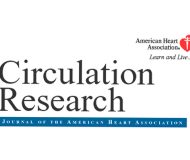

Having specific variants in the PATJ gene predisposes to a worse recovery from an ischemic stroke. 7 out of 10 patients with these variants suffer serious sequelae three months after the cerebral infarction, that is to say, they remain in a situation of dependence, in front of less than half of the patients who do not present these variants. These are data from an international multicentre study coordinated by researchers from the Hospital del Mar Institute of Medical Research (IMIM) and doctors from the Hospital del Mar, published in the journal Circulation Research. The study involved the participation of Dr. Israel Fernández, from the Pharmacogenomics and Neurovascular Genetics Group of the Sant Pau Research Institute and co-investigator of the study, where he also participated in its design and coordination.
This is the most important research carried out to date in the field of stroke genetics and prognosis, and the first to be published, with data from more than 2,000 patients and 12 international centres involved. The study was carried out with the help of La Marató de TV3 in 2010.
Dr. Jordi Jiménez Conde, coordinator of the study and assistant doctor of the Neurology Service of the Hospital del Mar, explained that “it is the largest study published so far in stroke genetics and prognosis and the first to find consistent results and that are replicated in different countries. The degree of disability at three months of more than 2,000 patients with ischemic stroke has been analyzed, which is the one produced by the obstruction of a cerebral artery and represents 88% of the total number of strokes, studying multiple clinical factors and their genetic data. Specifically, more than 5 million genetic variants per individual have been studied. And “the PATJ gene shows several variants that significantly influence the recovery of patients,” according to Dr. Jiménez Conde. It is a gene involved in cell unions, with a significant presence in nerve tissue and had already been linked to sleep disorders and obesity.
Genetic influence on recovery
“With this study, we have identified a set of genetic variants that are relatively common in the population and are associated with worse stroke recovery after three months,” said Dr. Marina Mola-Caminal, the study’s first signatory and a researcher with the IMIM Neurovascular Research Group. This opens up the possibility of studying the mechanisms used by the PATJ gene to influence this process. “In the future, these variants could be used as biomarkers at the time of stroke, and, depending on the presence of alleles (alternative forms that can present the same gene) of risk that each individual has, customize rehabilitation strategies.
At the same time “we can indicate an area of the genome very involved in processes of neuroplasticity and neuroregeneració, and perhaps, if we know the pathways well, we can develop new treatments that use this gene as a therapeutic target and help us improve the prognosis of patients, “says Dr. Jiménez Conde.
The study has had the participation of Dr. Israel Fernández, from the Pharmacogenomics and Neurovascular Genetics Group of the São Paulo Research Institute and co-investigator of the study, where he has also participated in its design and coordination. Dr. Fernández comments that “all the neuroprotective drugs tested to improve recovery after stroke have failed, so this study, using massive genetic strategies, can be a first step to develop new drugs that are really effective.
Dr. Raquel Rabionet, from the Centre for Genomic Regulation (CRG), currently at the University of Barcelona and linked to the San Juan de Dios Research Institute, and Dr. Cristóbal Vives, from the Son Espases University Hospital, also played an important role in the study.
The impact of stroke
Stroke, or cerebrovascular disease, is the leading cause of disability in adults in the world, with 15 million affected each year, of which 5 million are permanently disabled. The degree of functional recovery has a great impact on the quality of life of patients and families and on public health systems. The cost of this disability is estimated at between €12,000 and €17,000 per patient/year. In the case of Catalonia, where there are 13,000 hospital admissions for this reason each year, this figure is 54 million euros per year.
Reference article
Circulation Research. 2018;0